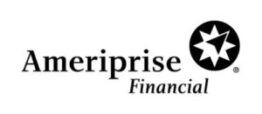
Howard Deen Richards, of Plymouth, Minnesota, a stockbroker formerly registered with NFP Advisor Services, has been barred by the Securities and Exchange Commission (SEC) from acting as an investment adviser, broker or associating with entities which sell securities or offer advice to the investor public pursuant to an Order Instituting Administrative Proceedings Pursuant to Sections 15(b) and 21C of the Securities Exchange Act of 1934, Sections 9(b) of the Investment Company Act of 1940, and Sections 203(k) and 203(f) of the Investment Advisers Act of 1940 containing findings that Richards effected a fraudulent trading scheme. In the Matter of Howard Richards, File No. 3-16877 (Sept. 30, 2015).
According to the Order, between January of 2010 and July of 2013, during which time Richards was an investment advisor representative with Securus Wealth Management, LLC, and stockbroker with Cambridge Investment Research, Inc. (2001 – 2013) as well as NFP Advisor Services, LLC (2014 – 2015), he took part in manipulative scheme to benefit Gatekeeper USA, Inc. common stock market prices. Apparently, Richards’ motive was to help Gatekeeper, a startup entity that lacked any revenue, to procure up to $46,000,000.00 in financing through investment banking and insurance entities, so that the company would be able to create, market and effect sales of a container automated monitoring device – a prototype product which was intended to be utilized in the shipping industry.
The Order indicated that Gatekeeper stock (GTKP) was traded in low volumes on the over-the-counter grey market. Richards was reportedly apprised by the vice-president of Gatekeeper’s finance division that sustainability in Gatekeeper’s market prices was a prerequisite to the company procuring any considerable financing arrangements. In pursuing the manipulative scheme, Richards effected an estimated $1,100,000.00 worth of customers’ investments in GTKP, where shares of GTKP had been purchased at a higher price during the time in which the price of GTKP would fall below a certain point. Richards reportedly exercised discretion in customer accounts to effect the transactions, and intended on profiting from the transactions personally and by way of the profits which his customers would generate once Gatekeeper’s financing was adequately secured.
The Order stated that transactions would be effected in GTKP by Richards in a manner which was indicative of marking the close. Particularly, in eighty-five percent of the days in which customers of Richards and Investor A (a non-customer who Richards corresponded with regarding Gatekeeper) traded, their trades were the last to be reported on the grey market.
Further, customers were influenced by Richards to hold their positions in the entity’s stock in order to prevent the stock price from declining. Apparently, Richards knew who owned GTKP by analyzing transfer agent data and corresponding with customers. The Order additionally revealed that Richards effected purchases of GTKP in customer accounts when other customers refused to hold their positions; effectively negating the effect of the customers’ transactions. The Order further stated that Richards executed his manipulate scheme by inducing an investor to purchase GTKP during prescribed timeframes based on providing the customer with a positive spin on the status of Gatekeeper’s efforts of securing financing.
Richards purportedly failed to apprise his customers concerning the conflicts interest caused by the fact that he owned a substantial amount of GTKP shares. Specifically, 113,000 shares of the company had been purchased by Richards for $200,000.00 between 2008 and 2009, in addition to shares of the entity that Richards privately purchased; yet his holdings had not been communicated to some customers until August of 2010.
Moreover, Richards was reportedly cognizant that his consistent trading activity contributed in large part to the market movement of GTKP. Evidently, thirty-eight percent of the trading volume in GTKP was influenced by transactions involving customers of Richards. Apparently, Richards touted his efforts by claiming to have been responsible for increasing GTKP’s closing prices. The Order additionally stated that in certain occasions, customers of Richards paid one-hundred percent more to acquire shares in GTKP than the most recent customers had paid.
The Order revealed that material omissions and misrepresentations had been made by Richards concerning GTKP’s market potential. Ironically, Richards purportedly communicated to customers in January of 2011 that the fall in GTKP was possibly due, in part, to trading which was caused by stock market manipulation. Further, he made misleading statements to customers that Gatekeeper had a legitimate demand in the market, despite the fact that his manipulative trading and purchasing of GTKP amounted to dominating the market for the stock.
According to the Order, he also failed to notify customers about the $57,000.00 worth of insurance policy premiums and expenses charged to Gatekeeper which had been covered via Richards as well as $141,000.00 in personal loans which Richards had provided to officers of the entity as well as the developer of the container automated monitoring device. According to the Order, customers were not informed about Richards’ influence and effect and on the communications to shareholders from Gatekeeper. Specifically, Richards reportedly provided the entity with content and edited Gatekeeper’s newsletter before it had been transmitted to Richards’ own customers in June of 2012.
Ultimately, Gatekeeper’s prices plummeted from eighty cents per share to as low as fifteen cents per share in October 2013 once Richards had been instructed to stop purchasing GTKP by the president and chief compliance officer of Securus Wealth Management, James Goodland. Richards’ conduct was found by the SEC to be violative of Securities Exchange Act of 1934 Section 10(b), Rule 10b-5. He was additionally found by the SEC to have aided violations of the Investment Advisers Act Sections 206(1) and 206(2) that were committed by Securus Wealth Management, LLC.
Guiliano Law Group
Our practice is limited to the representation of investors. We accept representation on a contingent fee basis, meaning there is no cost to you unless we make a recovery for you. There is never any charge for a consultation or an evaluation of your claim. For more information, contact us at (877) SEC-ATTY.
To learn more about FINRA Securities Arbitration, and the legal process, please visit us at securitiesarbitrations.com








